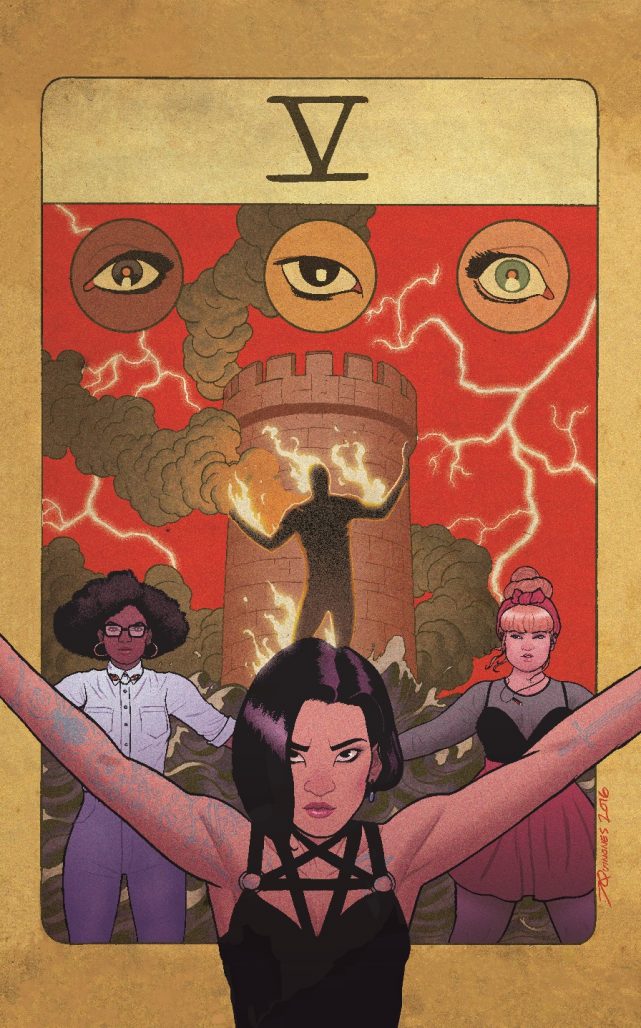
It’s quite something to be in Kate Leth’s orbit for a little while. One of the things that’s said of her seminal webcomic, Kate or Die, is how relateable, heartfelt, and personal it is. And that’s Leth in a nutshell. She simultaneously feels like the best nostalgia of comic-making, while also being it’s future.
I wish I could take more credit for how much fun the following interview is, but I honestly think any engaged comic journalist with a microphone would get a lot out of talking with Leth about her self-made beginnings and transition to licensed work, which led to her current series Spell on Wheels for Dark Horse. The trade paperback, which collects issues 1-5 of the supernatural road-trip series, was released this spring.
Edie Nugent: So you’re a great example of someone who kind of wrote their own ticket. When you started working on Kate or Die, is that some you hoped would launch you? Or did you just feel compelled to make it?
Kate Leth: I had no idea. I did not have any idea that I would end up writing as a living. It was almost … I’m not going to say it was by accident because I worked super hard. But, yeah when I started making them I was a really big fan of whip comics, I was a really big fan of Kate Beaton and Jess Fink and Erika Moen and a bunch of other people who I found after-
Edie Nugent: All the greats!
Leth: All the greats. I found them after getting a job in a comic shop and getting into that. I read Dinosaur Comics and A Softer World when I was in high school, which every time I remind them of that they feel really old.
Nugent: I was going to say: dating yourself a little bit.
Leth: It was the early days. But it was just something I wanted to do and my boss was really encouraging. Then yeah, I just got a couple of opportunities to do little things and then I did two strips for Boom and then they were like, ‘Hey do you want to write a graphic novel?’ I was like, ‘uh sure’ and pretended I knew how to do that. Then that did really well. So then it was all of a sudden my job.
Nugent: Was that Adventure Time?
Leth: Yeah it was. Seeing Red was the first one and it made the bestseller list. It’s the only thing I’ve ever written that has. Which is so funny.
Nugent: The Adventure Time bump.
Leth: It was. Then I just got a bunch of opportunities from there. Then it was Fraggle Rock and Edward Scissorhands and a lot of licensed stuff. It’s just like, ‘okay, sure!’ So, it’s been wild, it was totally unexpected.
Nugent: So, I’ve got to thank you for founding the Valkyries.
Leth: Oh, thank you.
Nugent: It’s sort of tempting, especially as a female comics fan and writer, to think things have improved in years since its founding. But has it been an upward trend in your experience?
Leth: I think it’s different in different capacities. I think the Valkyries have been really great for creating a community. Because I think we used to be very much we would champion specific books or specific events and then the group became so large, and people’s opinions and the things that they like became so diverse that it’s definitely more of resource now. A lot of people sharing ideas, helping each other, planning for conventions, putting together displays and things like that. That’s really cool and really useful. I think it’s also helped in that publishers and creators take us seriously because they know we have huge numbers and we have an influence-
Nugent: It’s kind of a union.
Leth: Yeah, a little bit, right?
Nugent: You’ve got bargaining power.
Leth: We do. So that’s been really cool and I think that’s been really important. I think, I mean definitely, there’s terrible things happening in comics always. But I don’t know, I think social media has really allowed women in this industry to band together and find each other in a way that we couldn’t five, ten years ago, before I was even in it.
Nugent: Right. There’s sort of a record now too because things don’t just disappear. It’s like, oh remember that thing that happened five years ago?
Leth: It’s there. So I think the community is the thing that’s definitely improved.
Nugent: You mentioned Adventure Time and Edward Scissorhands before. You’ve done a lot of licensed work–even Vampirella. How is the experience of writing your own ongoing title, Spell on Wheels, different?
Leth: It’s really fun. The first one I did was Power Up at BOOM! and I did it with my friend Matt [Cummings] I had never written an original property before so I think we learned a lot. When I came into Spell on Wheels, I felt like I was much more prepared and knew a lot more about how much world building I really needed to do. I find it really rewarding. I keep forgetting when I’m writing it that I can make whatever I want. I keep forgetting, ‘oh no, I don’t have to make this checklist’, or ‘oh no I can’t do these certain things–’
Nugent: ‘I don’t have to vet this through marketing?’
Leth: Exactly. I can make it as gay as I want, which is wonderful. Dark Horse is super supportive of all of that stuff, which is great. So I really love it. I really hope we get to do more, because it’s the five issues so far. Now it’s like, see how it does and hopefully we do more. I would really love to. But yeah, it’s been a great experience. And my team was so awesome. Megan [Levens] and Marissa [Louise] are the best.
Nugent: So you’ve got a witch’s coven of a creative team there. Megan on art, Marissa coloring. How’s that dynamic? Did you find life imitating art at all? Or art imitating life?
Leth: It was such a natural team. I mean, Megan came on pretty early and I was really excited because she had done the Buffy comics and I was like, ‘well there couldn’t be a better person to draw this.’ I definitely knew I wanted it to be a little more realistic than some of the stuff. Power Up is very cartoony, it was very much all ages. Hellcat was very cartoony and very young, and I don’t say that in a negative way at all because I love that style. But I wanted [Spell on Wheels] to be a little more teen and up. Megan was so perfect for that. She was so excited to do this series, we worked together really well. I try to be a very conscientious writer because I do have a background as an artist too where I’m like, ‘hey I know I wrote seven panels, but if you hate this I can change it.’
Nugent: No giant crowd scenes?
Leth: Yeah, like if you don’t like this, I’ll rewrite it. It’s fine. So I try to do that. We get along really well. Then when Marissa was brought on it was just a natural fit and she had so many amazing ideas for the color schemes. How the magic worked in the world. When we got to collaborating we made this huge Pinterest board of a 1,000 fashions and it was great. They’re an awesome team. I hope I get to work with them again.
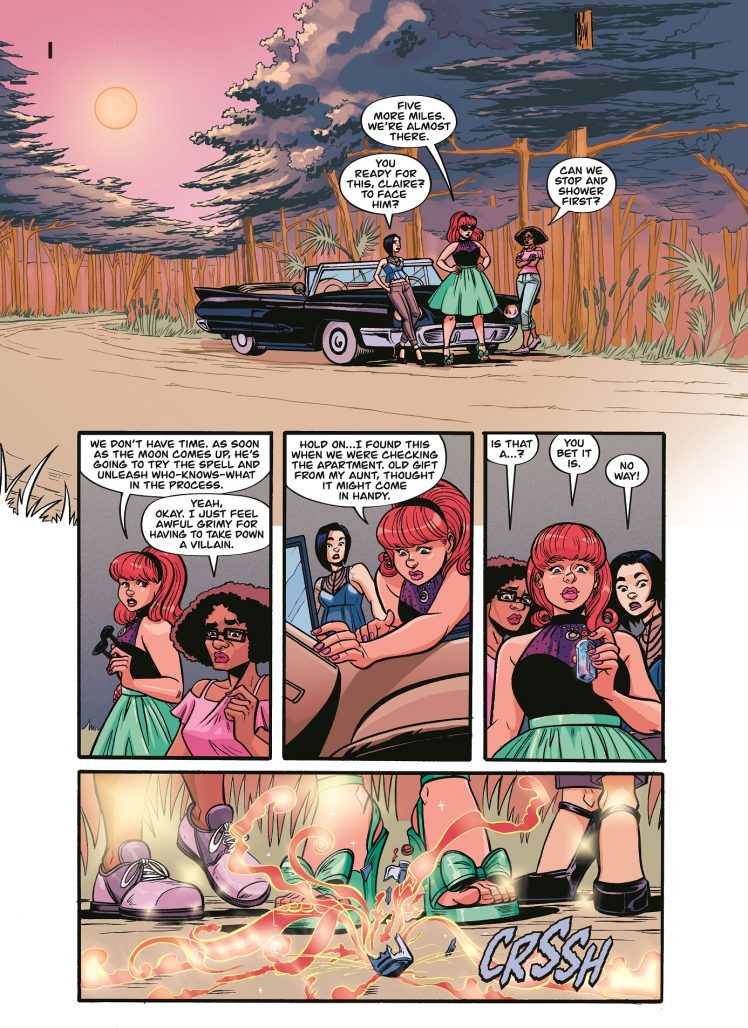
Nugent: Obviously there’s some pretty popular pop culture offerings featuring three witches and their fabulous adventures. In what ways did you want this series to stand apart from those that have come before?
Leth: I think I wanted it to be more modern and more reflective of the real world. I think the most obvious thing is that there’s a lot of queer content in the book.The girls are not all white. Which, again, Megan and I both are, but it’s something that’s really important to me, I think, to have them on the page. I grew up with Buffy and Charmed—Practical Magic is my favorite movie. I talk about that all the time, about how much I love witch movies and most of the Witches of Eastwick, until the ending.
Nugent: Yeah, but it’s all a little monochromatic.
Leth: It’s very white and it’s very straight. Even though Buffy does have queer plot lines, it’s 90s queer plot lines. I think it needs to be updated. So there were a lot of things I wanted to tackle in the book and have that right up front, not coated or brushed aside. Very much part of that world. I think it was my plea: ‘Hey, I want more of this.’ Because I loved these things in the 90s and early 2000s and then it kind of dropped off. You don’t see as much of it now.
Nugent: That’s true.
Leth: Or it’s that kind of very polished, cereal CW version of things.
Nugent: Like Supernatural. Which you know, I love a lot of Supernatural, but it’s so dudes.
Leth: It’s so dudes. So, there’s obviously some influence there, the whole road trip angle, but they specifically drive Elvira’s Thunderbird-
Nugent: I was going to say, that car showed up and I was like, ‘is it…? No. Not an Impala.’
Leth: It’s not legally her car. But it’s the same make and model. I’m a huge Elvira fan. Cassandra Peterson is one of my heroes for sure. She’s a self made millionaire. She’s such a brilliant business woman.
Nugent: You’ve got some characters that play against types. The fundamentalist who haunts his queer wife, but he actually turns out to be a pretty decent person. But then there’s also the controlling and vengeful ex boyfriend. How did you decide which tropes to subvert and which to fulfill?
Leth: I would never speak to my own experience, but I definitely know a lot of shitty ex-boyfriends. I’ve known a lot of guys like that who are very controlling and entitled. It’s Claire’s backstory, and as much as I wanted the book to serve as all three of the girls, it’s her backstory with that character overcoming that through her friends. Her getting over a terrible college relationship and realizing that you’re worth more than that.
So there were certain troupes that I definitely wanted to subvert. I can’t help it, I always want people to have more depth to them even when they’re villains. It is a problem when I’m trying to write pure evil and I’m like, ‘but what if? But what if we thought about it their humanity?’ I think it comes from writing so much kid stuff where you’re like, ‘okay, but how are they actually also secretly a good person?’
Nugent: So the story closes on the theme of transcending the shortcomings of our forebears. Is that a tale you set out to tell from the start? Or did it evolve as you developed the series?
Leth: It definitely evolved. We went back and forth in terms of how that would wrap up, but I definitely wanted it to be that sort of contradiction between–it is almost a parallel to that Harry Potter thing of purebloods and mudbloods. Why would you dilute the chain with this? There’s obviously some things I’m playing with in that realm, that I was trying not to be too hit you over the head with. But I definitely wanted it to be a thing where it’s like, ‘we shouldn’t keep these things within specific communities, it belongs to everyone. This magic belongs to everyone.’
I really hope, if we get to do more of the series, to explore that and to explore what kind of witches and whatever kinds of magic are out there, for sure.
Nugent: You’ve been a very outspoken figure in comments talking about the dearth of queer representation, as you mentioned before, and mental health struggles for example. Does being outspoken get easier or harder the more your profile increases?
Leth: I don’t know, I feel like the ways it gets easier…I’ve gotten to a point and I’ve dealt with so much backlash and so much, just people being mean.
Edie Nugent: I’d imagine so.
Leth: Yeah, it’s definitely happened. I know there are people who get it worse than I do, but it does happen and it’s happened for so many years that you do kind of develop a thicker skin, or at least you develop the ability to tell the difference between legitimate criticism and people who are just talking shit.
So there were early days where I couldn’t tell the difference and people would come to me with legitimate, real criticism and I would be like, ‘No, you’re a hater.’ Then as I got older I was like, ‘Oh no wait, they totally have a point.’ Now I try really hard to listen to the people. Like I think if … Trying to word this properly…I think it’s really important if someone tells you that your work has upset them or offended them, or offended a group they belong to, I think it’s really important to listen to that and learn and do better. But I don’t think you have to listen to people who are just trying to tear you down for the sake of tearing you down.
So I think I’ve gotten better at it. It doesn’t send me into week-long anxiety spirals every time someone gets mad at me anymore. But I do think it has made a very conscious person. I’m very aware of my output in the things that I say and the work that I make. It’s got negatives and positives.
Nugent: So, how do fans of the series lobby for more since you’re saying there may or may not be more?
Kate Leth: We’d love there to be more. Basically, buy the book. Ask your local library because libraries order in bulk and it’s a great way to show that people are reading it. Ask your local comic shop about it. Tell your friends.
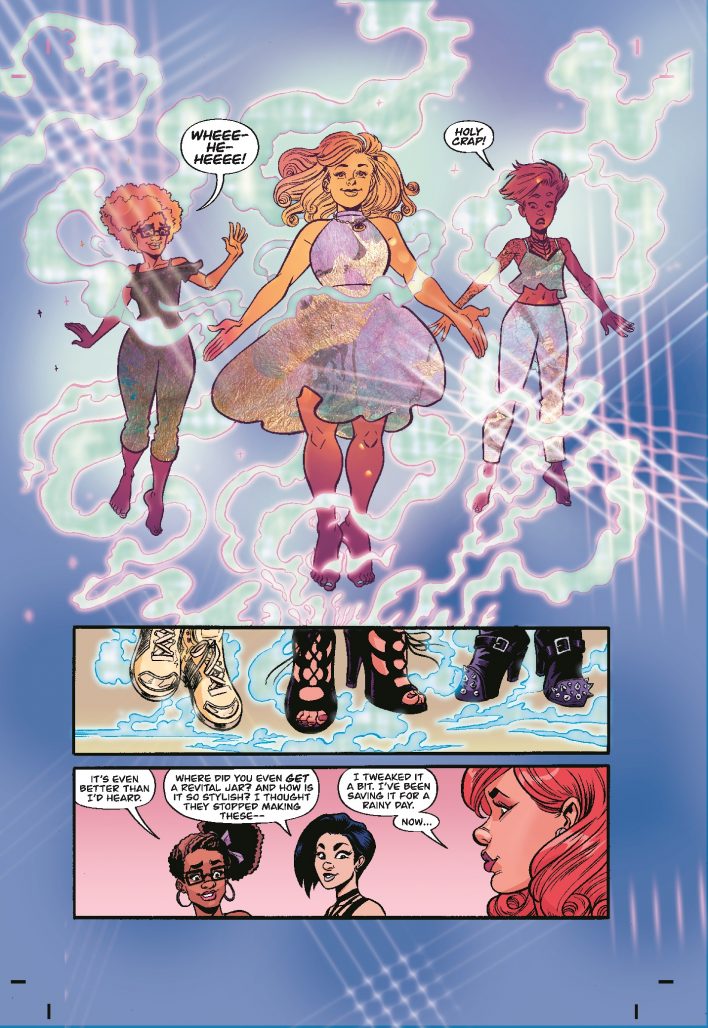


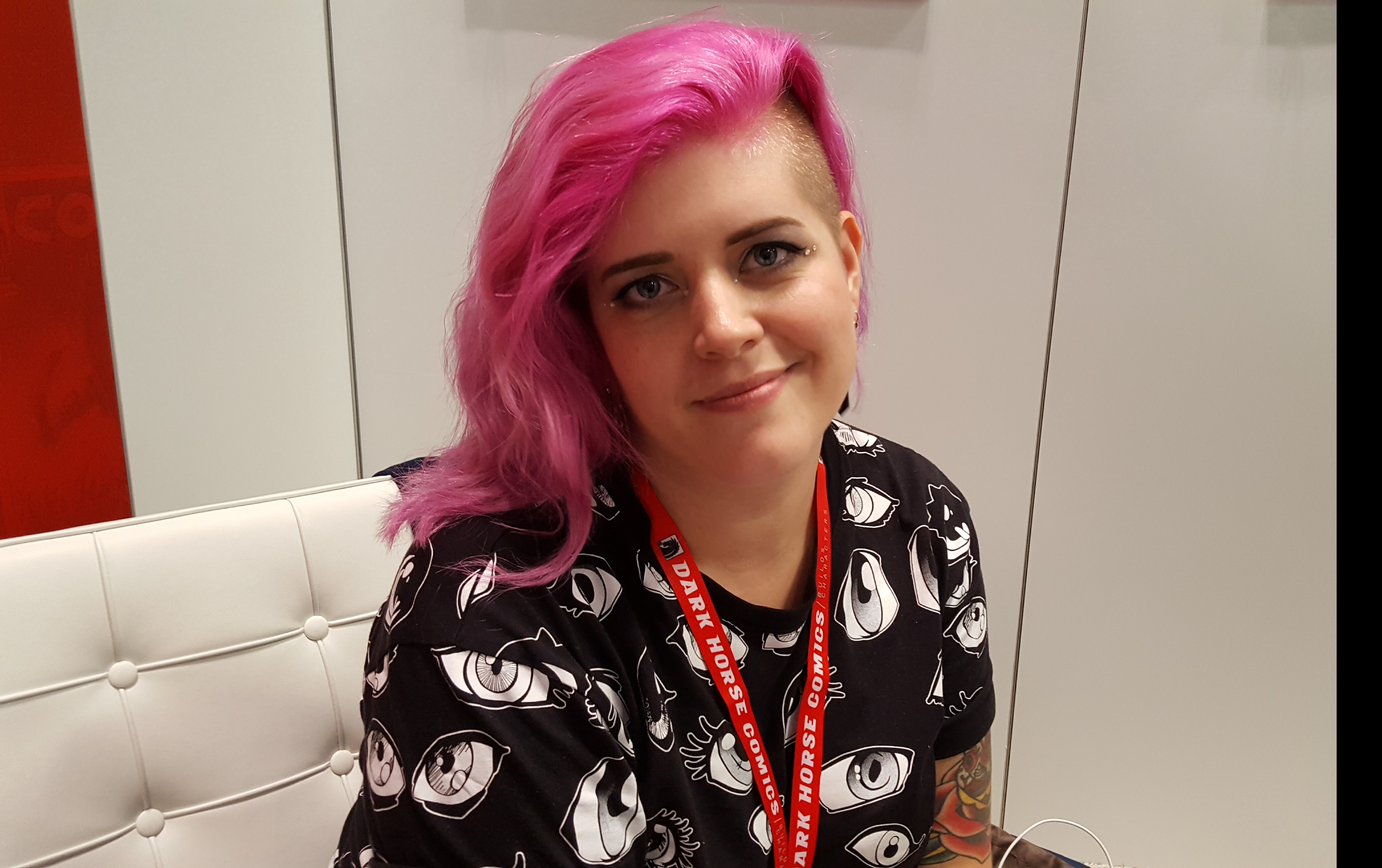

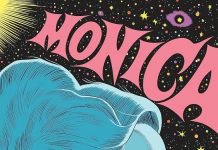
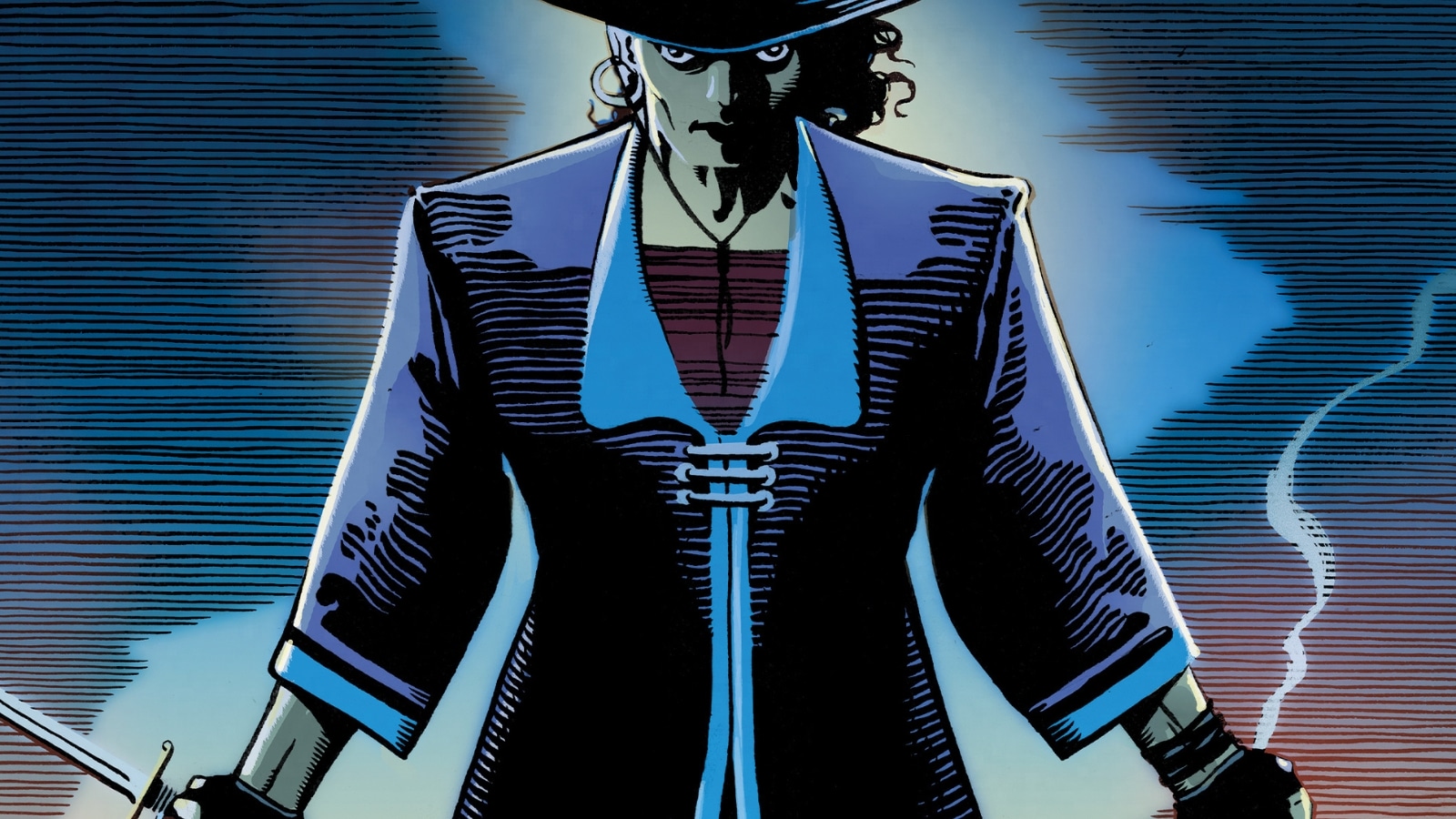
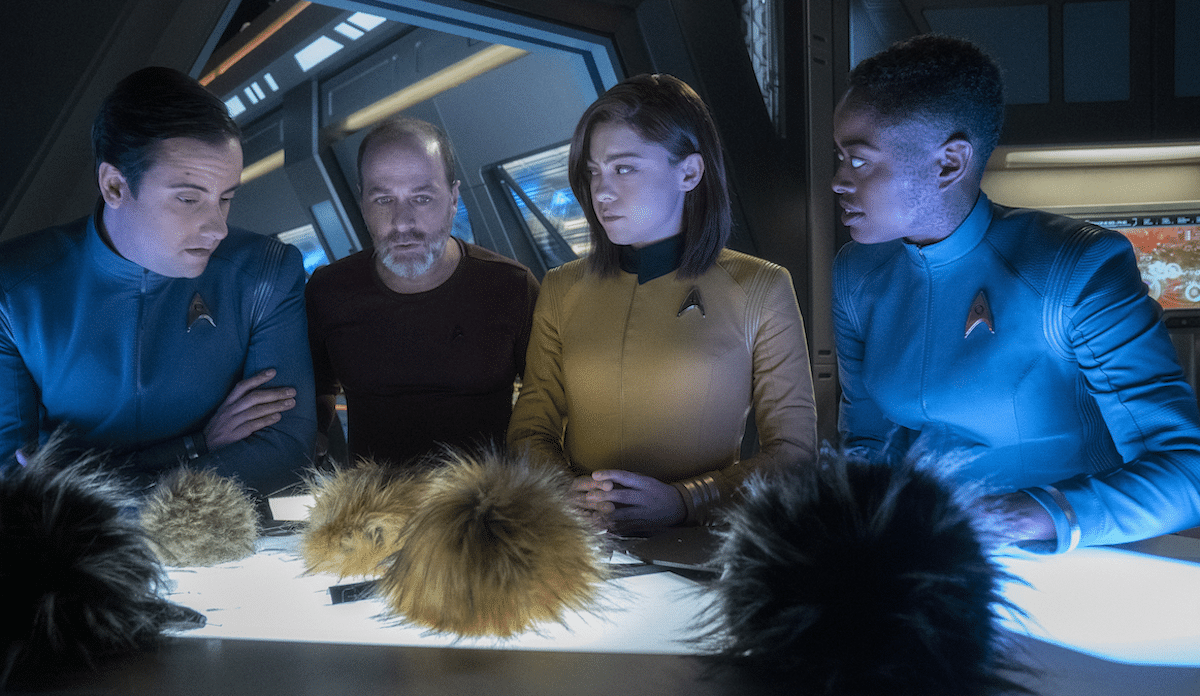

first rule of harresment is to stop any dissenting views and label of men s sleazy sex perverts
women are just as bad i.e. archie comics
Comments are closed.